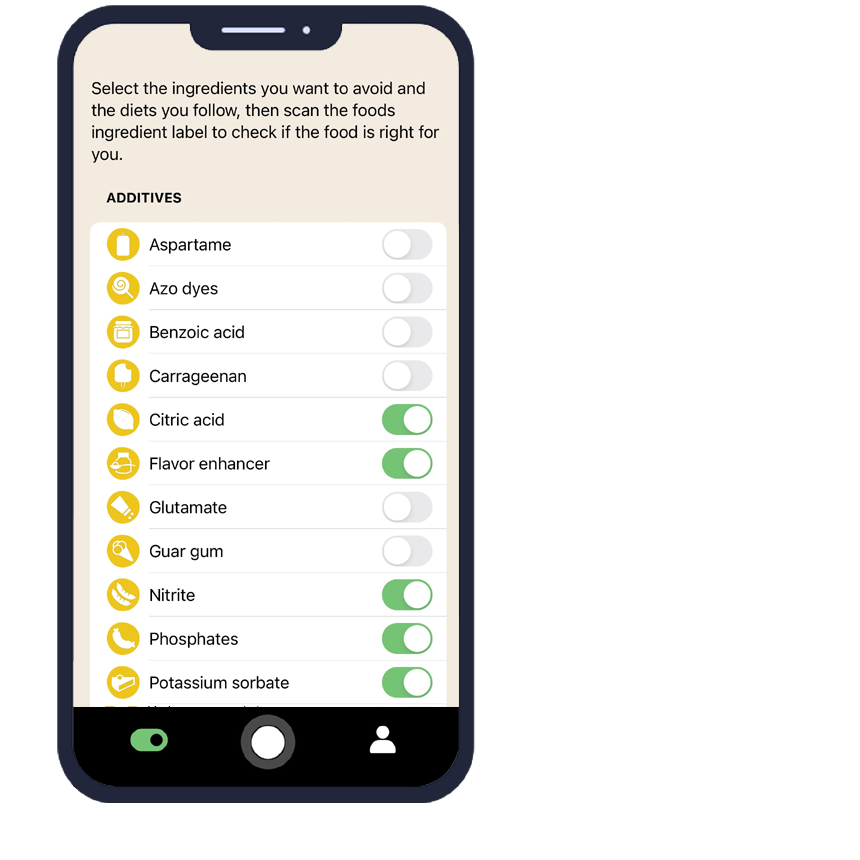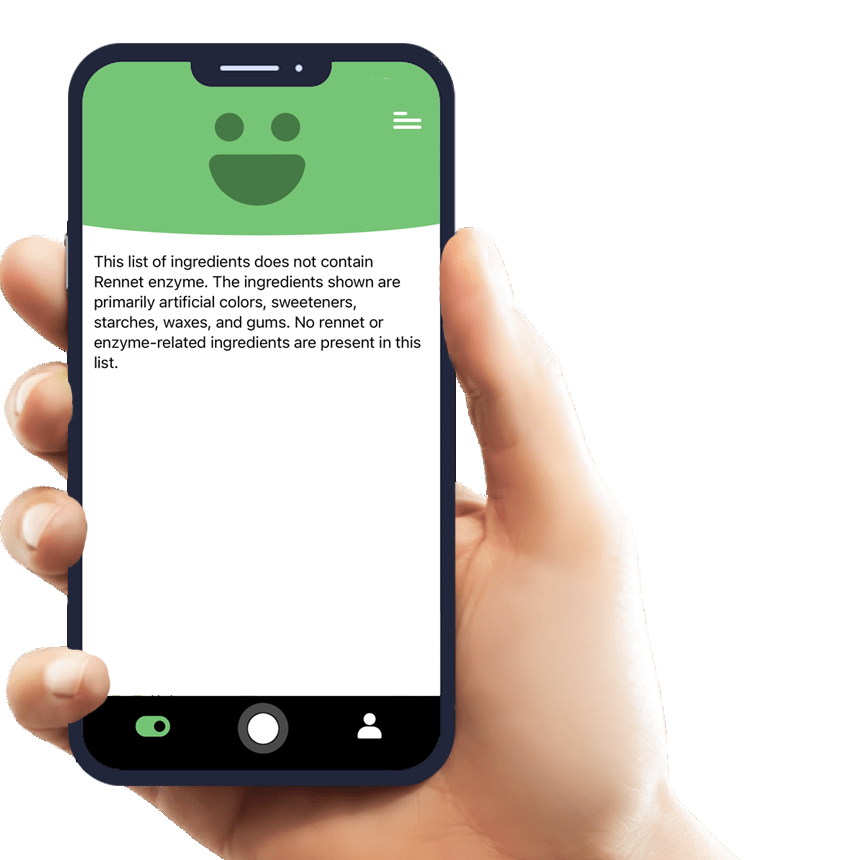Everything You Need to Know About Benzoic Acid and How AI Eat This Can Help
Benzoic acid is one of the most commonly used preservatives in the food industry, yet many consumers remain unaware of its presence in their daily meals. This naturally occurring compound and synthetic food additive appears in countless products, from soft drinks to processed snacks. For individuals with dietary restrictions, allergies, or those simply seeking to avoid certain food additives, identifying benzoic acid can be challenging.
The AI Eat This app revolutionizes how consumers navigate ingredient lists by instantly scanning and identifying benzoic acid and thousands of other additives in any language. Whether you're managing specific health conditions or making informed dietary choices, this innovative tool puts the power of ingredient recognition in your hands.
What Is Benzoic Acid and Where Is It Used?
Benzoic acid (E210) is a preservative that prevents the growth of bacteria, yeast, and mold in food products. This white crystalline compound occurs naturally in cranberries, prunes, and cinnamon, but most commercial benzoic acid is synthetically produced for food manufacturing. Its antimicrobial properties make it invaluable for extending shelf life and maintaining food safety.
The food industry relies heavily on benzoic acid because it's particularly effective in acidic environments. This characteristic makes it ideal for preserving products with low pH levels, where harmful microorganisms struggle to survive even without additional preservation.
Common Foods Containing Benzoic Acid
You'll find benzoic acid in numerous everyday products, often without realizing it. The preservative is especially prevalent in acidic foods and beverages where its antimicrobial properties work most effectively.
- Carbonated soft drinks and fruit juices
- Pickled vegetables and condiments
- Salad dressings and marinades
- Jams, jellies, and fruit preserves
- Processed meats and seafood
- Baked goods and desserts
- Cosmetics and personal care products
Is Benzoic Acid Safe? What Does the Research Say?
Regulatory Approvals and Guidelines
Major health authorities worldwide have extensively studied benzoic acid safety. The U.S. Food and Drug Administration recognizes benzoic acid as Generally Recognized as Safe (GRAS) when used within established limits. The acceptable daily intake is set at 5 mg per kilogram of body weight.
The European Food Safety Authority has conducted comprehensive reviews and maintains similar safety standards for benzoic acid use in food products. These regulatory bodies continuously monitor scientific research to ensure consumer safety and update guidelines when necessary.
Potential Concerns and Controversies
While generally safe for most people, benzoic acid can cause reactions in sensitive individuals. Some studies have suggested links between benzoic acid and hyperactivity in children, though the World Health Organization maintains that current evidence doesn't support widespread concern for the general population.
The preservative may also interact with vitamin C (ascorbic acid) under certain conditions, potentially forming benzene, a known carcinogen. However, this reaction typically occurs only under specific circumstances involving heat, light, and the presence of metal catalysts.
How Does AI Eat This Help You Avoid Benzoic Acid?
Managing dietary restrictions becomes effortless with AI Eat This's advanced ingredient scanning technology. The app uses artificial intelligence to instantly recognize benzoic acid and its various names across ingredient lists in multiple languages, eliminating the guesswork from food shopping.
Simply point your smartphone camera at any product's ingredient list, and the app immediately identifies benzoic acid along with other additives you wish to avoid. The personalized filter system allows users to set specific dietary preferences, ensuring that products containing benzoic acid are flagged before purchase.
The app's database includes alternative names for benzoic acid, such as E210, sodium benzoate (E211), and other related compounds. This comprehensive approach ensures you won't miss hidden sources of the preservative, regardless of how manufacturers list it on labels.
Who Should Consider Avoiding Benzoic Acid?
Certain individuals may benefit from limiting or avoiding benzoic acid in their diet. People with benzoic acid sensitivity may experience symptoms ranging from mild skin reactions to more severe allergic responses. Those managing dietary restrictions for health reasons often choose to eliminate synthetic preservatives entirely.
Parents concerned about potential behavioral effects in children sometimes opt to reduce benzoic acid exposure. Additionally, individuals following clean eating principles or organic diets frequently avoid synthetic additives like benzoic acid as part of their lifestyle choices.
People with asthma or aspirin sensitivity may also experience cross-reactions with benzoic acid, making identification and avoidance particularly important for these groups.
Tips for Maintaining a Benzoic Acid-Free Diet
Successfully avoiding benzoic acid requires strategy and the right tools. Start by focusing on whole, unprocessed foods that naturally don't contain synthetic preservatives. Fresh fruits, vegetables, whole grains, and unprocessed meats form the foundation of a preservative-free diet.
When purchasing packaged foods, always read ingredient lists carefully. Look for alternative preservation methods like natural antioxidants (vitamin E, rosemary extract) or choose products with shorter shelf lives that rely less on synthetic preservatives.
Utilize technology like AI Eat This to streamline your shopping experience. The app's instant scanning capability saves time while ensuring accuracy in ingredient identification. Set up personalized alerts for benzoic acid and related compounds to maintain consistent dietary adherence.
Consider preparing more meals at home using fresh ingredients, which gives you complete control over what goes into your food. When dining out, don't hesitate to ask about ingredients and preparation methods, especially for sauces, dressings, and processed items.
Conclusion
Understanding benzoic acid and its presence in food products empowers consumers to make informed dietary choices. While this preservative is generally safe for most people, those with sensitivities, dietary restrictions, or personal preferences to avoid synthetic additives benefit from reliable identification methods.
AI Eat This transforms the challenge of avoiding benzoic acid into a simple, technology-driven solution. The app's intelligent scanning capabilities, combined with personalized filtering options, make maintaining dietary restrictions more manageable than ever before.
Take control of your food choices today. Download AI Eat This for free testing and experience how technology can simplify your journey toward healthier eating and better ingredient awareness!

70 filters
With over 70 filters, you can easily avoid certain ingredients and follow your dietary preference.

Paleo

Pescetarian

Ultra-processed food

Vegan







































































